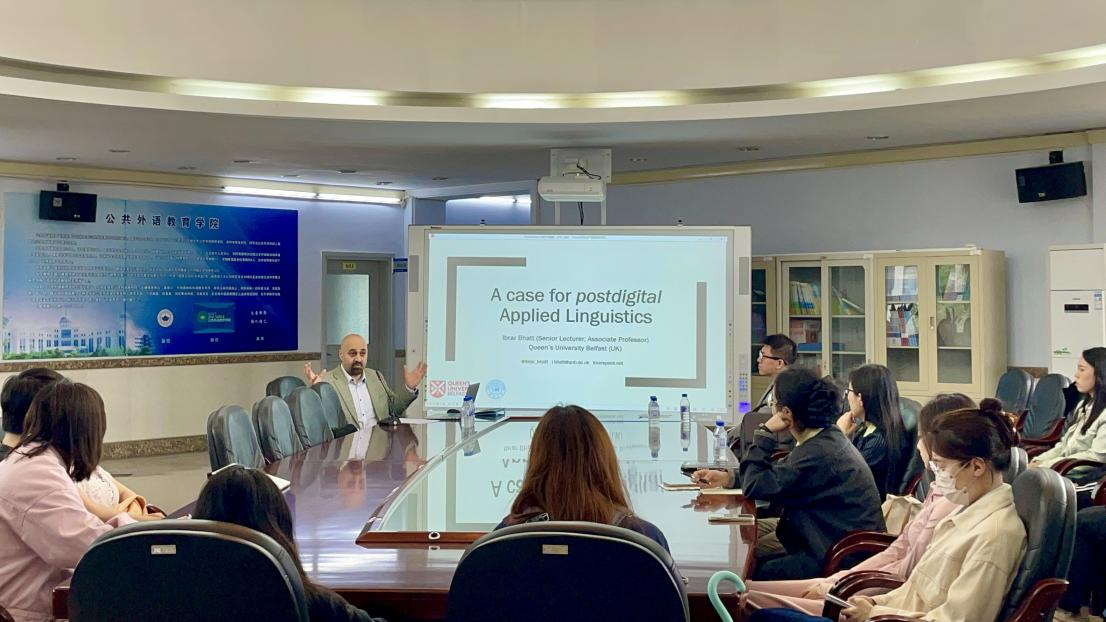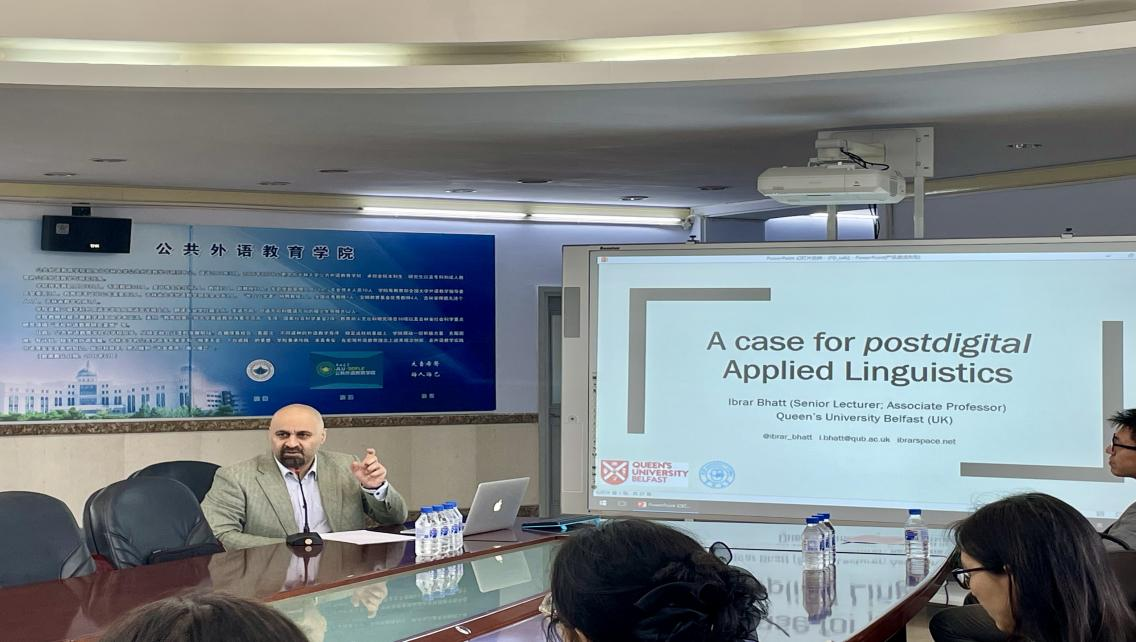On the morning of May 23, 2024, as part of the 40th anniversary celebration of the Graduate School of Jilin University, the School of Foreign Language Education invited Associate Professor Dr. Ibrar Bhatt from the School of Social Sciences, Education, and Social Work at Queen’s University Belfast (UK) to deliver a lecture on “A Case for ‘Postdigital’ Applied Linguistics.” The event took place in the Foreign Language Building’s Lecture Hall.
Dr. Ibrar Bhatt, a member of the Governing Council of the Society for Research into Higher Education, focuses his research on applied linguistics, higher education, and digital humanities. He serves as the Executive Editor for the journal Teaching in Higher Education: Critical Perspectives and sits on the Editorial Board for the journal Postdigital Science & Education. The lecture was moderated by Professor Jiang Feng, Associate Dean of the School of Foreign Language Education. Participants included postgraduate students and their supervisors.

During the lecture, Dr. Bhatt explored the profound impact of digitization on social life and language practice, with a special focus on the multi-dimensional application of the concept of “postdigital.” He began by highlighting how digitization has transformed people's lifestyles and interactions with the world. He explained that “postdigital” is not merely a technological phenomenon but also a social state, a research method, and a theoretical perspective. Dr. Bhatt then discussed the development of “postdigital” as an interdisciplinary concept, noting its relevance not only to linguistics but also to fields such as sociology and philosophy. He emphasized language practices and social interactions under postdigital conditions, presenting it as a novel method for researching digital language practices.
Dr. Bhatt demonstrated the complexity and diversity of online discourse by showing how to investigate “postdigital” discourse through various examples. He concluded the lecture by discussing the possibilities in the post-digital era, analyzing how platforms, algorithms, and business models shape literacies. He also introduced numerous research methodologies, such as linguistic ethnography and semiotics.

The lecture was well-received, leading to thorough discussions and in-depth reflections among the students. It provided new perspectives and methods for understanding the impact of digitization on language and society, delving into the complex and multi-dimensional concept of “postdigital” through different perspectives and examples.